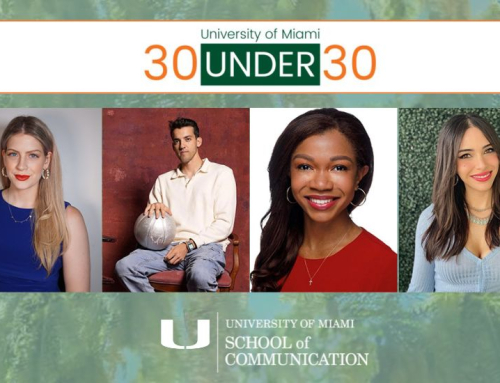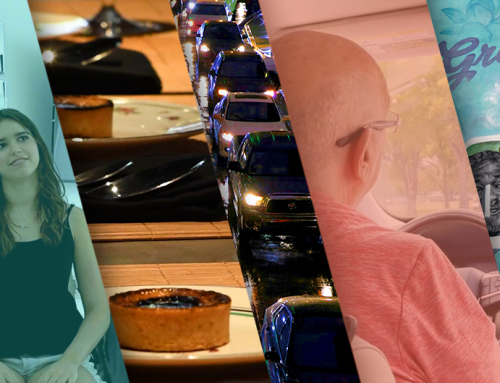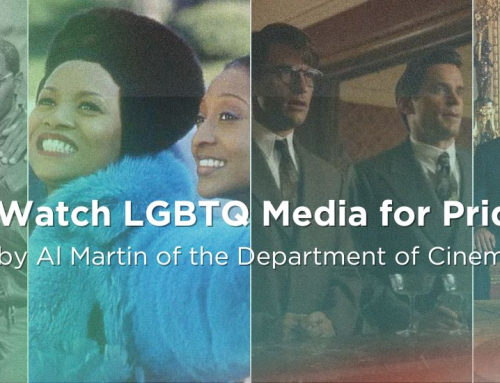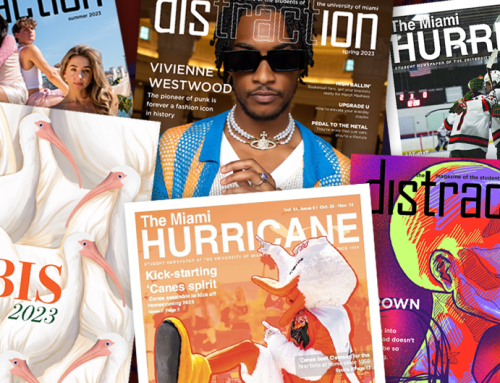By: Amanda M. Perez
For many people who make a living in the entertainment industry, life as they knew it abruptly changed in late March when the spread of COVID-19 forced every aspect of the business to shut down. With movie theaters going dark, concert halls closing their doors, and film sets delaying production indefinitely, the global pandemic essentially brought the multibillion-dollar business to a standstill.
“From a broad perspective, the entertainment industry as a whole has been hit pretty hard. There has never been anything like this that has affected the industry at this magnitude in our lifetime,” said Bill O’Dowd, a lecturer at the University of Miami School of Communication.
O’Dowd, who is an Emmy-nominated producer and founder of the production company Dolphin Entertainment, said that it will be challenging for the business, which employs more than 2 million people, to bounce back as quickly as other lines of work.
“So many parts of entertainment require large crowds, including movie theaters and concert tours. When it comes to television and film production, social distancing doesn’t allow for 50 to 75 people to come together on a set,” O’Dowd pointed out.
Although the lights have gone dark in Hollywood, different parts of the business are slowly trying to reinvent themselves during this time of crisis. When it comes to late night television, hosts have traded their lavish production sets for their living-room sofas.
“The production value is certainly one that people aren’t used to, but the interesting thing is people have been endeared by these hosts because all of a sudden they seem like real people to us,” said Betsy Helf Mateu, a lecturer in the Department of Cinema and Interactive Media in the School of Communication.
Helf Mateu began her career as an NBC page working at “Late Night with David Letterman” and “Saturday Night Live.” And, she later represented writers for both film and television while she was in New York. “I love how Jimmy Fallon incorporates his kids in his show,” she said. “It makes him really relatable to other Americans who are also social distancing at home with their children.”
As several television shows begin to slowly adapt to the new circumstances, O’Dowd explained that different kinds of entertainment sectors will bounce back quicker than others.
“Late night television is easier to rebound than, let’s say, the filming of the latest James Bond movie, because you’re going to need to have hundreds of people on set and to promote it by bringing large crowds together,” he said. “When it comes to the music industry, I’m sure singers like Taylor Swift can give a great concert online, but it’s not the same as experiencing her live at the American Airlines Arena. It all goes back to what kind of entertainment you’re talking about.”
On a local level, the University of Miami Frost School of Music is teaching its students to adapt to a new way of performing. In an effort to keep the music going, Frost students are now offering to present their talents virtually. Traditionally, the school’s “Hire a Musician Program” connects people in the community with artists who are willing to perform at their events. Now, the school is working to transition their talents onto an online platform.
“Frost students and alumni are ready to bring live music back to your life virtually. Gigging is their lifeblood; and due to COVID-19, the interruption of live, in-person performances has caused financial hardship. We want to keep the music playing and continue supporting these talented artists,” said Shelton G. Berg, dean of the Frost School.
Like the music business, the comedy field has taken a hit. But according to Michael Menendez, a stand-up comedian and University of Miami alumnus, there are ways of adapting to the new circumstances.
“Stand-up comedy is an industry that relies entirely on an audience. That’s part of the reason why I love it, and it’s an excruciating feeling to be away from it,” said Menendez. “I know a lot of people who are transitioning to Zoom shows, and I personally did one recently. Although I was glad to do it, I still missed the connection with the audience.”
Menendez said he has hope for the industry when it comes back.
“As long as people live and breathe, they’re going to want someone to make them laugh,” Menendez said. “I’d also like to think that when things start up again, comedians will be appreciated more than they were before.”
The Theatre Arts Department in the College of Arts and Sciences is also working to adapt to the new way of life. Michael Bush, assistant professor of practice, noted that the pandemic will offer unique opportunities to discover new ways of telling stories.
“Plays on Broadway are already being adapted to be performed on Zoom. It’s a new way of experimenting because I think they have to in order to survive,” Bush remarked. “I don’t think that these new techniques will replace traditional theater down the road. If you look at what happened during the plague, it shut down theatres for two years, but it reignited and came back to life right after that.”
Although it is a scary time for the Broadway industry, Bush has hope for the future.
“Yes, these circumstances are terrible, and we may not be able to get an audience in a theater for a while. But when the audience is ready to come, there will be people onstage who will be ready to tell amazing stories,” he said. “I’m excited to see what’s going to happen, and I’m also thrilled to be a part of a group that I know is going to bounce back and figure it out quickly.”
O’Dowd believes that there’s a silver lining for the streaming service business.
“The Netflix’s of the world are doing very well in this environment, and so is the gaming industry. Both sectors of the industry have been seeing a lot of business during quarantine,” he said.
According to Netflix, their first quarter figures show that the company now has more than 183 million global customers, adding more than 15 million in the last quarter.
As far as the future of the movie-theater business, many people are wondering what the long-term effects will be. Recently, Walmart announced that it will be transforming 160 of its parking lots into drive-in theaters, reigniting an old pastime. Throughout the pandemic, drive-in theaters have evolved into a safer alternative to traditional theaters.
Since quarantine began in early March, movie studios like Universal Pictures have also chosen to skip theatrical releases in the wake of COVID-19 and sell their films on demand. Earlier this year, headlines in the news publicized the tension between AMC Theatres and Universal Pictures after the company decided to release the movie “Trolls” straight to home entertainment. O’Dowd explained that the fight between the two entities is nothing new.
“This is the single biggest issue in the movie industry and has been for the last several years,’’ he said. “The movie ‘Trolls’ got more general awareness, but it’s been a headline tension since I started in the business. My feeling is that they will find a compromise.”
Helf Mateu agreed. “I suspect that people are craving the return of movie theaters because there’s just some movies that are experienced so much better in that space. Whether or not it’s at 50 percent capacity, I do ultimately think we are going to go back to seeing theatrical releases,” she predicted.
Both University experts said that they are interested to see what the new normal will look like when production sets reopen. O’Dowd said it could be the basis of how he teaches his course, “The Business and Legal Aspects of Motion Pictures,” in the future.
“Every guild is currently trying to write new protocols for when production resumes. It will be interesting to see how the protocols change once a vaccine is available,” O’Dowd added. “Will we go back to the old way of doing stuff, or will we find a middle ground moving forward? I imagine the business will now discover that there are better and healthier ways of doing things after learning from this pandemic.”
O’Dowd also said that he hopes the industry recovers as soon as possible. “Our country has built up some of the most powerful brands in the business and our entertainment is being sold globally. Billions of dollars are constantly flowing back into the U.S., so it’s important we keep the flow happening for our economy,” he said. “Also, for the sake of people, I do believe entertainment has a role to play in helping them cope during difficult times like these.”
As for those students who are graduating from the School of Communication with hopes of landing a job during this new anomaly, Helf Mateu suggested that they continue to think differently.
“I don’t know the new playbook, but I believe there will be many future opportunities,’’ Helf Mateu said. “I think they’re going to look different, but we’ve prepared our students well enough to have the skills to adapt as the industry emerges from this.”
This article originally appeared at https://news.miami.edu/stories/2020/07/the-future-of-the-entertainment-industry.html.






